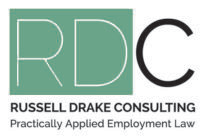Russell Drake wins another case in the ERA…
Recently we had another win in the Employment Relations Authority (ERA) on behalf of a client – see this determination here.
The primary claim by the employee focused on whether the 90 Day Trial that he was employed under was legal or not, and therefore whether his termination under this provision was unjustified. However, the critical question to be answered by the ERA was whether the employer in having the employee complete a pre-employment assessment had invalidated the right to use a 90 Day Trial Provision?
90 Day trials continue to be a valid method to assess whether an employee is suitable for the role that they have been employed into, with this however only being available to employers with less than 19 staff. The provisions associated with the use of a valid 90-day trial however include the criteria that the employee has never worked for the employer previously.
The question to be asked therefore (in the successful defence of this case) and in the use of 90 day trials in general is, when does having the employee undertake some pre-employment assessment activities become ‘work’.
In the above case, the employer operated a café and therefore as part of their usual recruitment process, prospective employees are asked to spend approximately one hour in the café completing a range of activities aligned to the work that they are seeking to gain employment within. For the café this included, demonstrating knowledge of order taking, using an eftpos machine, making coffee, carrying plates of food and clearing tables.
The employee claimed that their trial lasted three hours and that, during this time they did the work expected of other staff and that therefore this was ‘work’ that they should now be paid for. The employee could not provide any evidence of this ‘work’ with the employer being able to demonstrate that the employee could not have been present for more than an hour as claimed, as another potential was scheduled to come in for their trial one hour after he commenced his, and he confirmed that he never met the next candidate.
While being successful in defence of this claim, the employer had to endure several months of hardship and costs, while the matter proceeded through mediation and then into the ERA process before the determination confirmed that they were justified in terminating the employee.
How could this potentially be avoided in the future?
It is acknowledged that for some jobs, a valuable part of the recruitment process will remain having the prospective employee undertake similar activities to what they would be required to complete if appointed to the role. Therefore, if a 90 day trial is to be used (or even as part of good human resource practice outside of the 90 day provisions) any employee being asked to complete a pre-assessment should be asked to sign a Pre-Employment Assessment Declaration.
The declaration will confirm that the activities to be undertaken are part of an assessment for the role and that the employee can hold no expectation of payment or employment associated with completing the assessment.
The design of the assessment process also needs to be carefully planned, and to be consistently applied to any candidate for similar roles. This process will differ from role to role, and company to company however there are a number of standard criteria that can be used to gain the best possible understanding of the employees capabilities prior to confirming any appointment decision.
If you are using 90 day trials, or even if you are wanting to strengthen your recruitment processes and believe that implementing a robust pre-employment assessment would add value and reduce the potential risk and liability associated with employing a person, please feel free to contact us as we have a number of template documents available to support you in avoiding the pitfalls associated with the personal grievance process.

